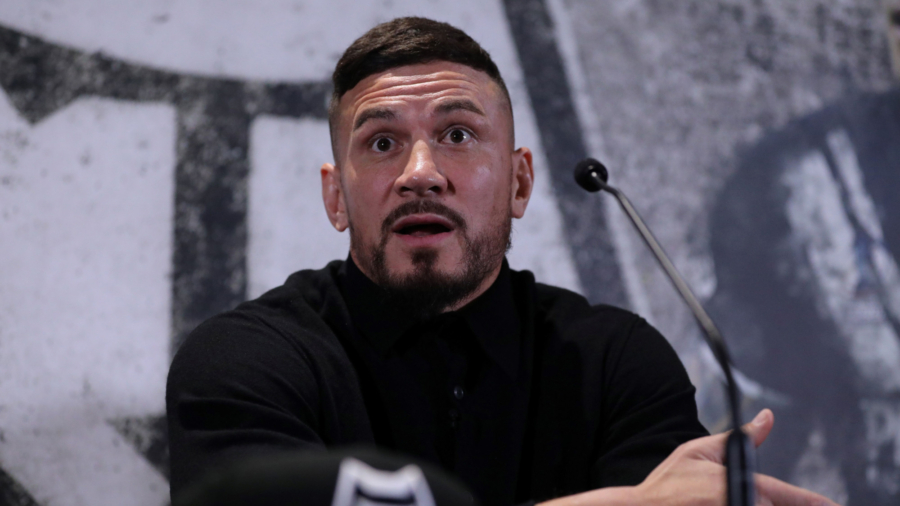New Zealand rugby star Sonny Bill Williams has joined soccer player Mesut Ozil in speaking out against human rights abuses by the Chinese government in the country’s far-western Xinjiang region.
Williams posted an image of a hand colored in the style of the Chinese flag, bloodily gripping another hand painted like the flag of East Turkestan on his official Twitter account Monday. East Turkestan is what some Muslim-majority Uyghurs call their home region of Xinjiang.
“It’s a sad time when we choose economic benefits over humanity,” wrote Williams, who converted to Islam in 2009.
It’s a sad time when we choose economic benefits over humanity#Uyghurs ????❤️???????? pic.twitter.com/F5EIWIOY7n
— Sonny Bill Williams (@SonnyBWilliams) December 22, 2019
Cross-code star Williams won the rugby union World Cup with New Zealand in 2011 and 2015. He became the world’s best-paid rugby player in November after signing a two-year contract worth $10 million with rugby league club the Toronto Wolfpack.
Williams told CNN in November that his faith has helped him manage difficult times in his career. He was a prominent presence in New Zealand after the Christchurch mosque attacks in January, in which 51 people were killed.
The U.S. State Department estimates that up to two million Uyghurs and other Muslim-majority minorities have been held in huge detention centers in Xinjiang, where they have allegedly undergone political re-education.
Former detainees and Uyghur exiles claim it is part of a program designed to eradicate their culture and customs, turning them into Chinese-speaking patriotic citizens.
The Chinese government has repeatedly denied the camps are “detention centers,” saying instead they are voluntary “vocational training centers” targeted at de-radicalizing citizens.
Ozil Backlash
In a post to his social media on Dec. 13, Arsenal midfielder Ozil denounced his fellow Muslims who had stayed quiet on Xinjiang.
“(In China) Qurans are burned, mosques were closed down, Islamic theological schools, madrasas were banned, religious scholars were killed one by one,” he said in the post. In response, Chinese state media pulled coverage of Arsenal’s English Premier League game against Manchester City.

Arsenal distanced itself from Ozil’s comments, but U.S. Secretary of State Mike Pompeo tweeted his support for the under-fire star on Dec. 17.
“China’s Communist Party (CCP) propaganda outlets can censor @MesutOzil1088 and @Arsenal’s games all season long, but the truth will prevail,” tweeted Pompeo.
“The CCP can’t hide its gross #HumanRights violations perpetrated against Uighurs and other religious faiths from the world.”
China had invited Ozil to visit Xinjiang to “distinguish right from wrong” after his social media messages.
In a rare press conference Thursday, China’s ambassador to Australia Cheng Jingye said that all of the “trainees” at the Xjinjiang camps had graduated. He didn’t provide any evidence for his claims.
This isn’t the first time that sport and politics in China have collided in 2019, but unlike soccer or basketball, rugby does not have a high profile in the country.
In October, the NBA’s relationship with China was tested following a now-deleted tweet by Houston Rockets general manager Daryl Morey expressing support for anti-government protests in Hong Kong. An estimated 300 million people play basketball in China.
![]()


